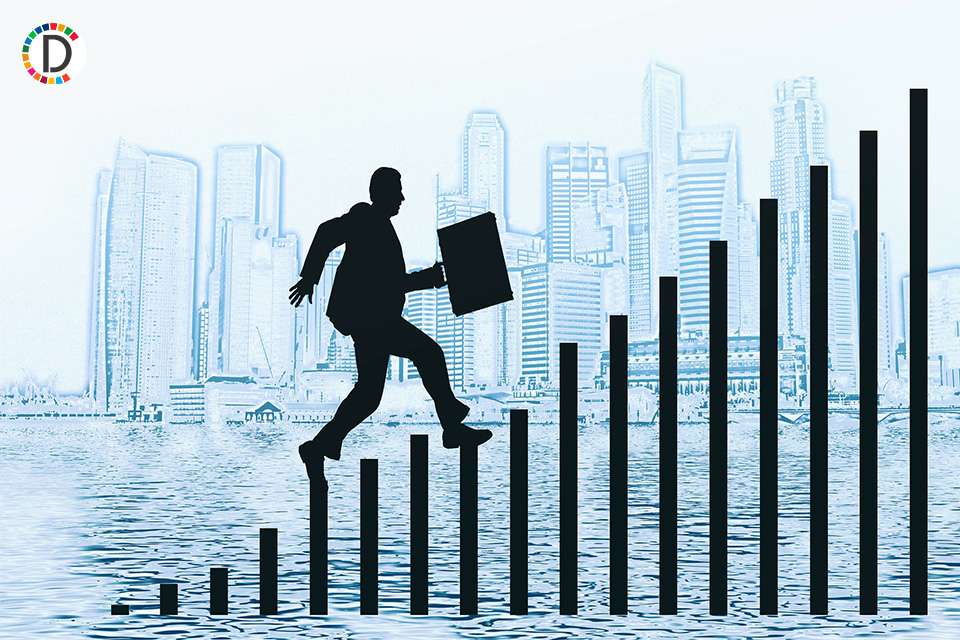GRAPHIC-U.S. Federal Reserve delivers second super-sized rate hike
It will likely shy away from a bigger rate rise and stick to the more 25 bps increases it has been delivering, but it is a very close call, according to a Reuters poll. 5) NORWAY Norway, the first big developed economy to kick off a rate-hiking cycle last year, raised rates by 50 bps on June 23 to 1.25%, its largest single hike since 2002. The Norges Bank plans to raise rates by 25 bps at each of its four remaining policy meetings in 2022, although larger increments are also possible, Governor Ida Wolden Bache said.

The U.S. Federal Reserve on Wednesday delivered its second straight 75 basis point rate hike, reinforcing its commitment to contain red-hot inflation. Policymakers said inflation "remains elevated" while also noting that "recent indicators of spending and production have softened," a sign that the aggressive set of rate hikes they have put in place since March may be beginning to bite.
Central banks in the United States, Canada, New Zealand, Switzerland and elsewhere have lined up with aggressive rate rises recently and the European Central Bank last week delivered its first rate hike since 2011. Japan, which is yet to lift rates in this cycle, is the holdout dove among the 10 big developed economies.
In total, those central banks have so far raised rates in this cycle by a combined 1,215 basis points. Here's a look at where policymakers stand in the race to contain inflation.
1) UNITED STATES The Fed on Wednesday said high inflation is "reflecting supply and demand imbalances related to the pandemic, higher food and energy prices, and broader price pressures."
Data last week showed U.S. consumer prices accelerated 9.1% in June, the largest annual increase in inflation in more than 40 years. 2) CANADA
The Bank of Canada meanwhile this month delivered the first 100-basis-point rate increase among the world's advanced economies in the current policy-tightening cycle. It lifted its key policy rate to 1.5%. With latest data showing annual inflation at 8.1% in June, the highest in 39 years, analysts reckon another big rate hike is likely.
3) NEW ZEALAND The Reserve Bank of New Zealand delivered its sixth straight rate rise on July 13, lifting the official cash rate by 50 bps to 2.5%, a level not seen since March 2016.
It remains comfortable with its planned aggressive tightening path to restrain runaway inflation. 4) BRITAIN
The Bank of England will almost certainly hike rates for a sixth time in August following data showing inflation in June surged to a 40-year-high of 9.4%. It will likely shy away from a bigger rate rise and stick to the more 25 bps increases it has been delivering, but it is a very close call, according to a Reuters poll.
5) NORWAY Norway, the first big developed economy to kick off a rate-hiking cycle last year, raised rates by 50 bps on June 23 to 1.25%, its largest single hike since 2002.
The Norges Bank plans to raise rates by 25 bps at each of its four remaining policy meetings in 2022, although larger increments are also possible, Governor Ida Wolden Bache said. 6) AUSTRALIA
Data on Wednesday showing Australian inflation sped to a 21-year last quarter has cemented expectations for a 50 bps rate hike when the Reserve Bank of Australia meets on August 2. It has raised its key rate three months in a row to 1.35% and markets are leaning towards a 75 bps rate move next week.
7) SWEDEN Another late-comer to the inflation battle, Sweden's Riksbank delivered a half percentage-point interest rate hike on June 30 to 0.75%, its biggest hike in more than 20 years.
As recently as February, the Riksbank had forecast unchanged policy until 2024, but governor Stefan Ingves now expects rates to hit 2% in early 2023 and said 75 bps moves are possible. 8) EURO ZONE
The European Central Bank on Thursday hiked its deposit rate by 50 bps -- more than expected -- in its first rate rise since 2011 to fight soaring inflation. The move to raise rates to 0% ended an eight year experiment with negative rates. The bank also promised further rate hikes possibly as soon as its next meeting on Sept. 8.
9) SWITZERLAND On June 16, the Swiss National Bank (SNB) unexpectedly raised its -0.75% interest rate, the world's lowest, by 50 bps, sending the franc soaring.
Recent franc weakness has contributed to driving Swiss inflation towards 14-year highs and SNB governor Thomas Jordan said he no longer saw the franc as highly valued. That has opened the door to more rate hikes. 10) JAPAN
Japan is the holdout dove. The Bank of Japan last week maintained ultra-low interest rates of -0.1% and signalled its resolve to keep them that way even as it projected inflation would exceed its target this year. BOJ Governor Haruhiko Kuroda said he had no plan to raise rates or hike an implicit 0.25% cap set for the bank's 10-year bond yield target, because Japan was still recovering from the pandemic and its terms of trade had worsened.
(This story has not been edited by Devdiscourse staff and is auto-generated from a syndicated feed.)










